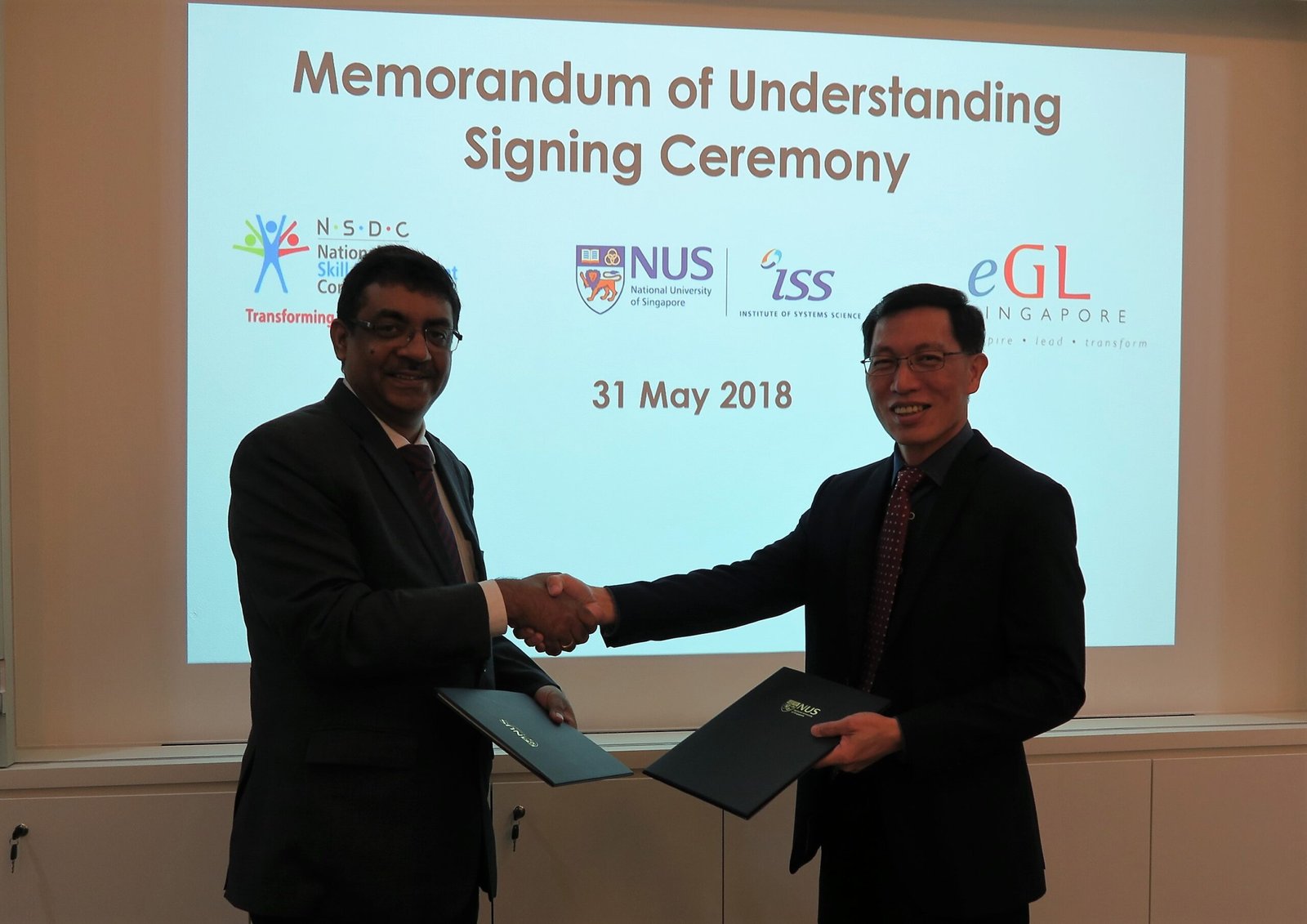Our Prime Minister, Shri Narendra Modi’s vision to make India Skill Capital of the world, largely depends on how smartly we are able to strategize and execute our international skilling plans, programs and processes. In this Skill Talk, Basab Banerjee, International Vocational Skills Specialist, SkilIndiGlo, shares his experience about the business of skilling from the global perspective. The action points shared by him are sure to make us re-think about how we are conceptualizing and implementing our international skilling programs. Let’s read on…
SkilIndiGlo has been facilitating an international skilling ecosystem by working closely with global industry partners, industry bodies, training partners and the government, with focus on quality and efficiency. Our in-depth understanding in areas like mobilisation, skilling, certification, placement and post-placement support demonstrates our commitment to explore global markets for skilled youth from India. Whether it is the requirement for construction workers in the Gulf Region, or CNC operators and fitters for manufacturing companies in Romania, or auto-service technicians in Japan, we are equipped to address transnational skilling needs and meet global standards.
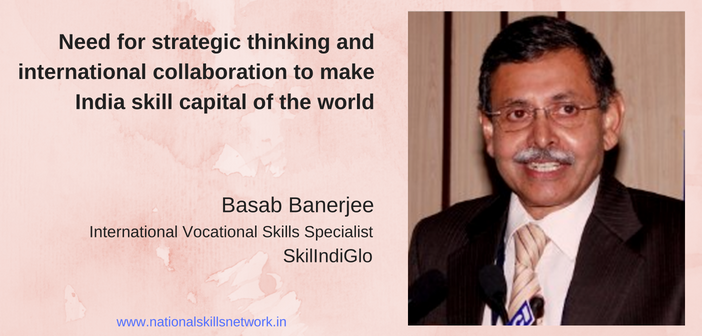
Labour deficiency across the globe
There is a paradigm shift in global migration and working trends. According to a Report published on the NSDA website, there is enormous scope for international skilling and placements. Let’s look at some interesting statistics.
- One out of seven people, in every country, are migrants and in countries like UAE, 84% of the overall population constitutes overseas population.
- Mckinsey Global Labour Report of 2012, analyses 4 important trends by 2030; 1. The international working population will be 3.5 billion; 2. 1/10th of this population, that is, 38 to 40 million people- will be the shortfall in many countries, and these are people who will be college-educated workers; 3. Another 38 to 40 million people, who will be deficient, will be blue-collared workers; 4. India will be one of the prime contributors to global workforce.
- The Report also suggests ways in which nations can narrow the skill gap and and how nations, which would be deficient of labour, should allow more high-skilled workers to enter their countries. It is asking these countries to change their laws of immigration. And, very categorically, the Report says that China will be replaced by India as one of the largest talent providing countries of the world.
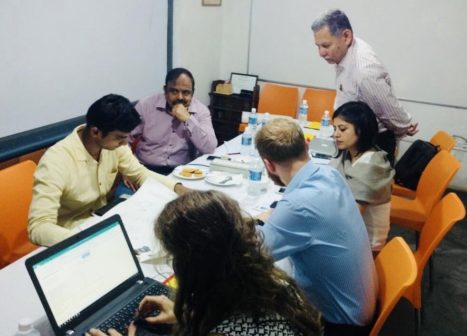
In the context of this Report, we know that our education and skilling system need to be upgraded to global standards if we want to become the source of providing quality labour to the world. When we are talking of international skilling, it is essential to understand the opportunities. People are more open to move and migrate today. Given the burgeoning demand of labour globally, India is in a position to become Skill Capital of the World, but only if we are able to rapidly upscale our education and our vocational education and training to match the demand.
Global talent shortage and an opportunity for India
Canada has a shortage of 552000 skilled workers; it requires 149000 technicians, etc. Japan requires engineers, technicians, Singapore requires people in finance, manufacturers, etc. Australia requires accountants, etc. Brazil will be short by 2 million workers by 2020. These are the opportunities worldwide and they all are ready to absorb skilled workers.
There is a talent shortage in a vast number of countries across the world. A Manpower Group’s Report says that, in Japan, 86% of employers are finding it difficult to recruit and in Taiwan, it is 73%. In Romania, 72% of employers have difficulties in finding the right people. According to a report from the UN and ILO, India is in a good position to supply the labour to the world, however, it lacks in the skilling education and training. These labour-deficient countries are looking to partner with nations which will provide them with skilled labour.
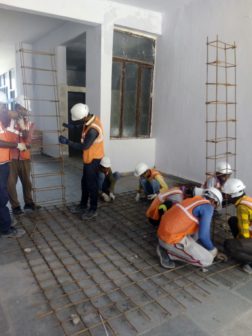
In Asia, China is going to be labour-deficient by 2030. Thailand, Japan, Singapore, Cambodia, etc. are all going to be labour-deficient by 2030. There are also countries in Asia which have surplus labour. So, there is a balance in labour supply and demand in Asia. India has near-shore and far-shore opportunities. Many Studies will tell you the job roles which are in great demand globally. The job roles like electricians, carpenters, plumbers, masons and other blue-collared roles along with IT related white-collared jobs have huge openings in many countries.
Need to re-look at our approach and strategies in international skilling
The government’s commitment to international skilling is evident from various initiatives from MSDE and tie-ups with many countries. But we need to do a lot of strategic thinking and there need to be dedicated people to do this. Who is doing this kind of planning today? This is an important question. There are 72 countries in the world where workers from India could go to work.
The government must create a strategic team to become a skilling powerhouse in the future. This should be a dedicated strategic team for overseas skilling and placements only. First, this team must carry out primary and secondary research and bring out half-yearly reports on labour deficiencies globally. Second, it should engage with a pre-defined number of countries, with a set target in mind to send Indian workers to countries, which have labour deficiency.
Countries like Sri Lanka, Nepal, Bangladesh already have their strategies in place. The target number of Indians who should fill global positions annually, should be set by the honourable Prime Minister of the country. We cannot depend on the domestic industry sectors, to absorb our teeming millions, how much can the domestic sector absorb?
Let’s look at how we can bring in the strategic element in the current processes and the kind of investment we need in terms of resources for drafting the strategy with a long-term vision.
- Government to government MoUs for provision of Indians as skilled manpower, must be signed by the strategic team, which should be based out of MSDE. We already have such MoUs with Japan, Sweden and other countries. We need to have MoUs with at least, 50 countries.
- For every country, we need to have a task force of 2-3 people. These 2-3 people will create the platform- a need analysis of labour requirement in that country- in terms of quality, quantity, job roles, etc.
- We then need to map and create transnational standards for each of the job roles identified. This must be done for each country. We need to reach an agreement with the employers on curriculum and courses. An agreement must also be reached on the trainers and pedagogy. A skill certificate must be provided by NSDC which will be acceptable to both the governments.
- Lastly, there must be adequate employer engagement. Our government and NSDC, must sit with chambers of commerce of different countries and chalk out a plan for the skill requirements of their members.
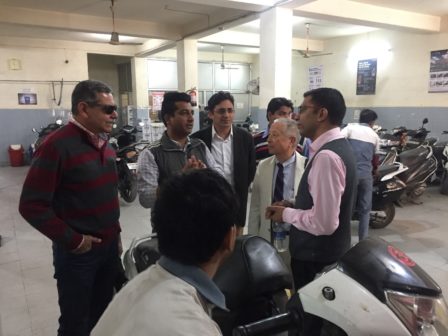
Role of Private Players
Then comes the role of private players with respect to training. Both Government and private sector Training Partners (TPs) could pitch in to train workers by skilling them according to the global employerneeds. Then, NSDC can shortlist 15 of these players and send them to the host countries in delegations for workshops, where individual TPs can sign up with specific employers to fulfil their requirements. We need to create a B2B engagement. We can provide quality-assured workers to the entire world.
As a private player, we have sourced business to skill and place Indians in Romania for Capital Goods Sector, in Abu Dhabi for HVAC Technicians, and for many employers in GCC Countries for multi skilled Construction Workers. Many more businesses are in final stages, from Italy, Germany, Norway and others . All in a period of eight months. So I want to give this message to all Training Organisations – focus on International Clients, make India the Skill Capital of the World.
Making blue-collared jobs aspirational
The market needs to invest to bring in machinery and trainers who can train blue-collared workers according to global standards. As soon as the informal workers get into overseas employment, they sign contracts and enter formal employment. It becomes a paradigm shift in their lives. We need to institutionalise training for these blue collar workers, even in India, and this can be the second revolution – led by the MNCs who are setting shop in India.
Subscribe to our YouTube channel for more updates:
Subscribe on YouTube




